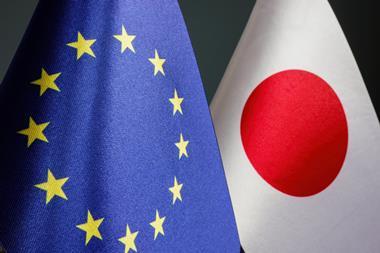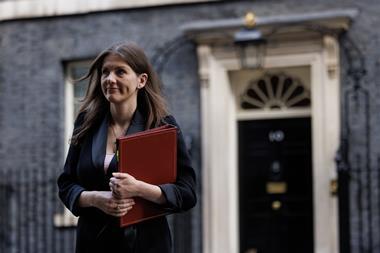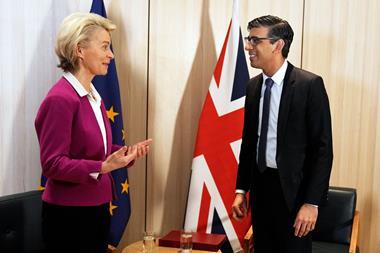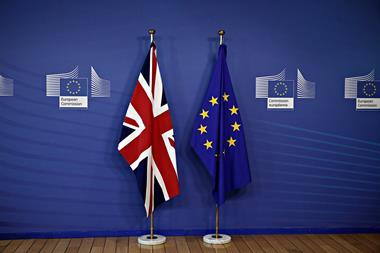UK science has received a boost with the announcement that it is to rejoin Horizon Europe in 2024. However, it seems that there’s no relief for 2023 winners of prestigious European Research Council (ERC) starting grants, which are funded by Horizon, who are based in the UK. They still face the prospect of either giving up their grant or leaving for an EU country.
Despite the deal to rejoin Horizon Europe, the situation for 2023 ERC award winners in the UK remains largely unchanged. This is because the new agreement on the UK rejoining Horizon Europe will not begin until 2024.
This year the UK slumped to joint fourth place with Italy for the number of researchers winning ERC starting grants. UK applications to the ERC have fallen recently and grants secured by UK-based researchers have been cut in half on last year, driven by uncertainty around the future of the UK in Horizon Europe. David Eggleton, a science policy researcher at the University of Sussex, says that the situation has acted as a disincentive for UK scientists to apply for ERC funding.
In June, the UK extended a financial guarantee to researchers applying for funding from Horizon Europe for the fifth time since 2021. The scheme matches the funding the ERC would have provided.
Now, ERC award winners are still faced with the choice of accepting UK funding, thereby tying themselves to the UK for five years, or rapidly packing up and leaving for a country that was associated to Horizon Europe by 2023.
Hard choices
Thirty-two researchers in the UK were recently awarded ERC grants. Candidates propose a host institution when submitting applications but can switch to another institution in countries associated with Horizon Europe at any time.
The ERC says that to receive EU funding, the 2023 grant winners affiliated to UK institutions will need to move the project to an eligible host institution in the EU or associated countries. ‘If they can’t do that, the ERC executive agency will have to terminate their grant preparations and offer the funding to candidates initially put on research lists,’ the ERC states.
Once a UK-based grant winner is ready to sign their contract and receive their funding they have to have decided whether to move the project and take the grant or turn to UKRI for funding.
‘It is a difficult position,’ says analytical chemist Maya Al-Sid-Cheikh at the University of Surrey, who recently won an ERC grant to investigate nanoplastics’ biological effects. ‘It seems if I don’t move before 20 October, then I won’t have the freedom to move later for five years.’ But she built the project with her host institution and would prefer to both stay in the UK and receive ERC funds.
‘The ERC grant is a game-changer for your career,’ says Al-Sid-Cheikh. ‘As the money is in your name, you have the leverage to get promoted faster, have your own research without teaching and the portability gives great flexibility.’
Giving up grants
Last year, 70 ERC grant winners proposed projects in the UK, placing the country just below Germany in terms of successful winners. ‘Of those 70 researchers, 13 decided to move their project to an eligible host institution and 57 researchers decided to give up their grant,’ according to the ERC.
For 2023, ERC starting grants attracted over 2696 proposals with an overall success rate of 14.8%. Forty-four nationalities won grants, notably Germans (66 researchers), Italians (57), French (32) and British (24). Starting grants can be up to €1.5 million (£1.3 million) over five years, but an extra €1 million is available to cover start-up costs, equipment or field work. This year’s grants totalled €628 million.
Successful applicants for 2023 will carry out their research in 24 countries in Europe, with the highest number of projects hosted in Germany with 87 grants, France with 50, the Netherlands with 44, and Italy and the UK tied with 32 each.
Al-Sid-Cheikh, who is French, plans to continue her research in the UK but would not rule out a move abroad if UK institutions remain ineligible to host ERC grantees. She has been approached by universities in France about a possible switch.
Another ERC starting grant winner is Ludmilla Steier at the University of Oxford who plans to study new materials for photocatalysis to synthesise solar fuels. She did not submit a grant proposal last year as she had concerns about the UK being outside Horizon, but this year had been reassured by the UK government’s funding guarantee scheme.
Eggleton says that despite the UK securing a deal to rejoin Horizon it now has some catching up to do. ‘Research collaboration structures will have already shifted to account for the disincentive of working with UK-based researchers,’ adds Eggleton. ‘Many researchers have already left the UK to avoid all this uncertainty.’

















No comments yet